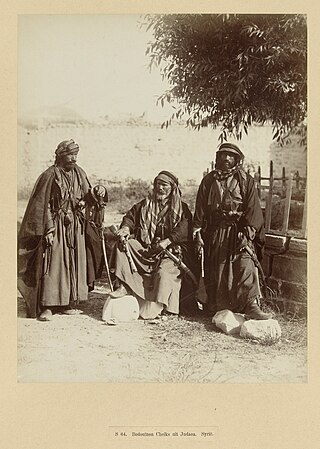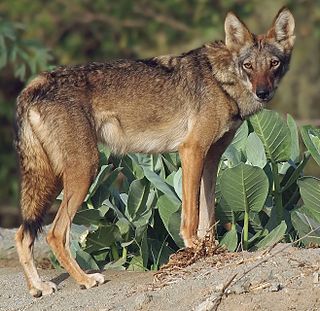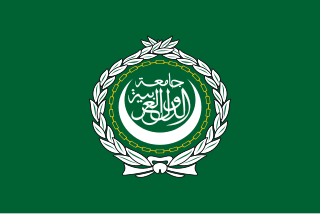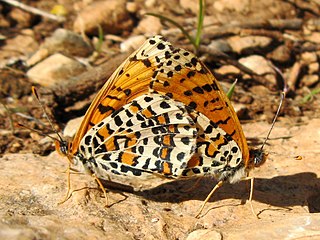
The Bedouin, Beduin, or Bedu are pastorally nomadic Arab tribes who have historically inhabited the desert regions in the Arabian Peninsula, North Africa, the Levant, and Mesopotamia (Iraq). The Bedouin originated in the Syrian Desert and Arabian Desert but spread across the rest of the Arab world in West Asia and North Africa after the spread of Islam. The English word bedouin comes from the Arabic badawī, which means "desert-dweller", and is traditionally contrasted with ḥāḍir, the term for sedentary people. Bedouin territory stretches from the vast deserts of North Africa to the rocky ones of the Middle East. They are sometimes traditionally divided into tribes, or clans, and historically share a common culture of herding camels, sheep and goats. The vast majority of Bedouins adhere to Islam, although there are some fewer numbers of Christian Bedouins present in the Fertile Crescent.

The Arab world, formally the Arab homeland, also known as the Arab nation, the Arabsphere, or the Arab states, comprises a large group of countries, mainly located in Western Asia and Northern Africa. While the majority of people in the Arab world are ethnically Arab, there are also significant populations of other ethnic groups such as Berbers, Kurds, Somalis and Nubians, among other groups. Arabic is used as the lingua franca throughout the Arab world.

West Asia, also called Western Asia or Southwest Asia, is the westernmost region of Asia. As defined by most academics, UN bodies and other institutions, the subregion consists of Anatolia, the Arabian Peninsula, Iran, Mesopotamia, the Armenian highlands, the Levant, the island of Cyprus, the Sinai Peninsula and the South Caucasus. The region is separated from Africa by the Isthmus of Suez in Egypt, and separated from Europe by the waterways of the Turkish Straits and the watershed of the Greater Caucasus. Central Asia lies to its northeast, while South Asia lies to its east. Twelve seas surround the region (clockwise): the Aegean Sea, the Sea of Marmara, the Black Sea, the Caspian Sea, the Persian Gulf, the Gulf of Oman, the Arabian Sea, the Gulf of Aden, the Red Sea, the Gulf of Aqaba, the Gulf of Suez, and the Mediterranean Sea. West Asia contains the majority of the similarly defined Middle East. The Middle East is a political term that has changed many times depending on political and historical context while West Asia is a geographical term with more consistency. It excludes most of Egypt and the northwestern part of Turkey, and includes the southern part of the Caucasus.

The graceful prinia is a small warbler. This prinia is a resident breeder in northeastern Africa and southern Asia, from Egypt and Somalia east to Saudi Arabia, where it is sometimes called streaked wren-warbler.

Onopordum, or cottonthistle, is a genus of plants in the tribe Cardueae within the family Asteraceae. They are native to southern Europe, northern Africa, the Canary Islands, the Caucasus, and southwest and central Asia. They grow on disturbed land, roadsides, arable land and pastures.

The Middle East and North Africa (MENA), also referred to as West Asia and North Africa (WANA) or South West Asia and North Africa (SWANA), is a geographic region. While still referring to most of the Middle East and North Africa together, it is widely considered to be a more defined and apolitical alternative to the grouping of countries that is known as the Greater Middle East, which comprises the bulk of the Muslim world.

The Arabian wolf is a subspecies of gray wolf native to the Arabian Peninsula—to the west of Bahrain, as well as Oman, southern Saudi Arabia, and Yemen. They are also found in Israel’s Negev and Arava Deserts, Jordan, Palestine, and Egypt's Sinai Peninsula. It is the smallest Gray wolf subspecies, and a specialized xerocole (arid-adapted) animal that normally lives in smaller familial packs. Arabian wolves are omnivorous and opportunistic eaters; they consume small to medium-sized prey, from insects, reptiles and birds to rodents and small ungulates, such as young Nubian ibex and several species of gazelle.

The mourning wheatear is a bird, one of 14 species of wheatear found in northern Africa and the Middle East. It is a small passerine in a group formerly classed as members of the thrush family Turdidae, but now more generally considered to be part of the Old World flycatcher family Muscicapidae.

The Asian garden dormouse or large-eared garden dormouse, is a species of rodent in the family Gliridae. It is found in Egypt, Iraq, Israel, Jordan, Lebanon, Libya, Saudi Arabia, Syria and Turkey. Its natural habitats are temperate forests, subtropical or tropical dry shrubland, Mediterranean-type shrubby vegetation, rocky areas and gardens.

The 1964 Arab League summit was the first summit of the Arab League, held in Cairo, Egypt, on 13–16 January 1964 and attended by all fourteen of the then member states: United Arab Republic (Egypt), Iraq, Lebanon, State of Palestine, Syria, Saudi Arabia, Jordan, Yemen Arab Republic, Libya, Sudan, Morocco, Tunisia, Kuwait and Algeria.
The Demographics of the Middle East describes populations of the Middle East, a region covering western and northern parts of the Asian and African continents respectively.

This is a list of the competitive matches played by the Syrian football team since its inception.
Mughrabi, Mugrabi, Mograby, Mograbi, or Moghrabi is a surname and place name derived from "Maghreb" – meaning "West" in Arabic, and usually referring to North Africa or specifically to Morocco, i.e., the westernmost part of the Arab and Muslim world. It exists among both Muslims and Jews originating from this region.

The Abdullah Azzam Brigades, or al-Qaeda in Lebanon, is a Sunni Islamist militant group, and al-Qaeda's branch in Lebanon. The group, which began operating in 2009, was founded by Saudi Saleh Al-Qaraawi and has networks in various countries, mainly in Egypt, Iraq, Syria, Jordan, the Gaza Strip and Lebanon.

The 1964 Arab League summit in Alexandria was held on 11 September 1964 in Montaza Palace, Alexandria as the second Arab League Summit. The focus of the conference was to implement the plans discussed at the first Arab League summit held in January of that year. The summit was notable for being a key step in the buildup to the Six-Day War in 1967 and separately for "approving the establishment of the Palestine Liberation Organization."
This article provides details of international football games played by the Qatar national football team from 2000 to 2019.
The Arab Cold War was a political rivalry in the Arab world from the early 1950s to the late 1970s and a part of the wider Cold War. It is generally accepted that the beginning of the Arab Cold War is marked by the Egyptian revolution of 1952, which led to Gamal Abdel Nasser becoming president of Egypt in 1956. Thereafter, newly formed Arab republics, inspired by revolutionary secular nationalism and Nasser's Egypt, engaged in political rivalries with conservative traditionalist Arab monarchies, influenced by Saudi Arabia. The Iranian Revolution of 1979, and the ascension of Ayatollah Ruhollah Khomeini as leader of Iran, is widely seen as the end of this period of internal conflicts and rivalry. A new era of Arab-Iranian tensions followed, overshadowing the bitterness of intra-Arab strife.

Arab-Pakistan relations refer to foreign relations between Pakistan and the various states of the Arab world which constitute the Arab League.

Melitaea deserticola, the desert fritillary, is a butterfly of the family Nymphalidae. It is found in North Africa, Lebanon, Israel, Jordan, Saudi Arabia and Yemen.
The Conference of the Latin Bishops of the Arabic Regions (CELRA) (French: Conférence des Evêques Latins dans les Régions Arabes) is an episcopal conference of the Catholic Church which gathers the Latin Church bishops in the Arab States of the Middle East, North Africa, East Africa and Cyprus.















